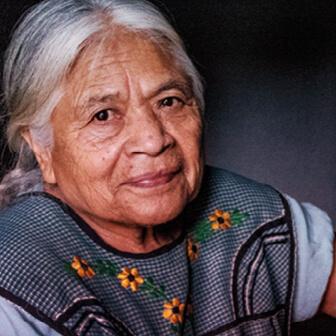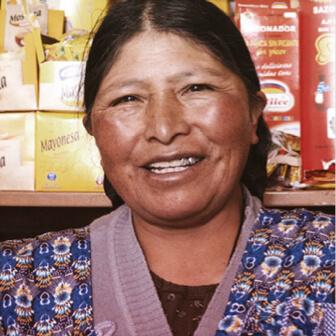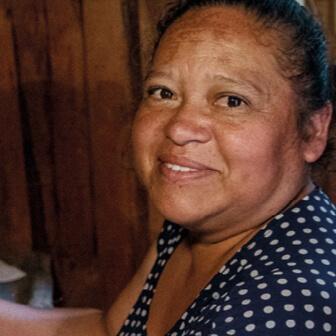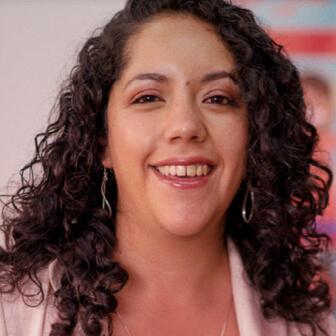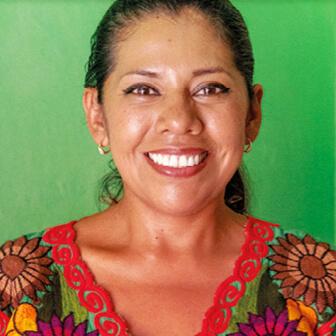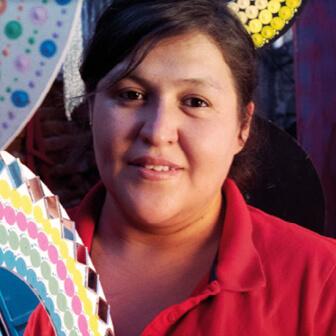EXPANDING ACCESS TO HEALTH CARE FOR COMMUNITIES LIVING IN REMOTE AREAS
1 marzo, 2021
Blog, Health, Stories
Pro Mujer’s Community Health Workers (CHWs) program seeks to provide preventive care and education to communities in Bolivia’s most remote areas.
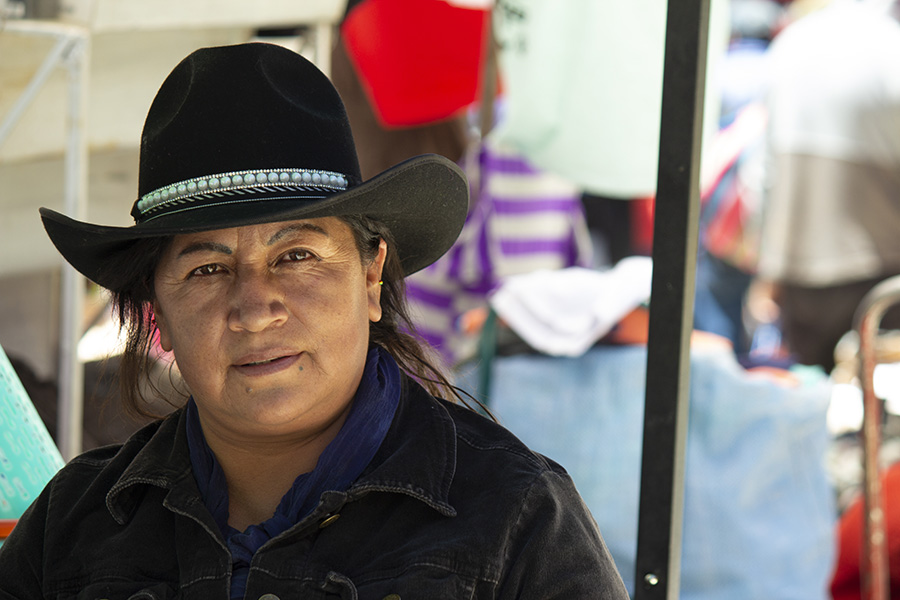 Judith Mita Paredes, one of Pro Mujer’s clients in Bolivia, lost her father and sister due to chronic diseases such as diabetes. This motivated her to become a community health worker to provide education on disease prevention and healthy habits to underserved communities in Bolivia.
Judith Mita Paredes, one of Pro Mujer’s clients in Bolivia, lost her father and sister due to chronic diseases such as diabetes. This motivated her to become a community health worker to provide education on disease prevention and healthy habits to underserved communities in Bolivia.
Pro Mujer’s community health workers are women who belong to communities where access to health services is scarce or often non-existent. “In these remote areas, there is little health information … And by being part of this [initiative], I want to educate and support my community. They need someone they can trust with their health, ”says Judith.
In Latin America, 30 percent of the population faces barriers to access health care. For example, 83 percent of women in Bolivia work in the informal sector leaving many of them with no access to health insurance to pay for preventive care and treatment.
Through a training program developed by Pro Mujer, women like Judith are becoming leaders working hard to help these underserved communities access health care and education, an important endeavor especially during the challenging times brought on by the COVID-19 pandemic.
Currently, the program has 120 active community health workers. They are, in part, helping drive a campaign to educate on COVID-19 prevention. Using a newly developed health chatbot, they have been able to reach out to more than 60,000 people to date and provide personalized care to more than 600 who were identified as being at risk of being infected with the coronavirus.
Our CHWs program will continue to reach out to underserved communities to ensure they have access to education and preventive care including healthier habits and exercise.
“I want to make sure my community knows that these [chronic] diseases can be prevented. I want them to lead healthier lives.” added Judith.
